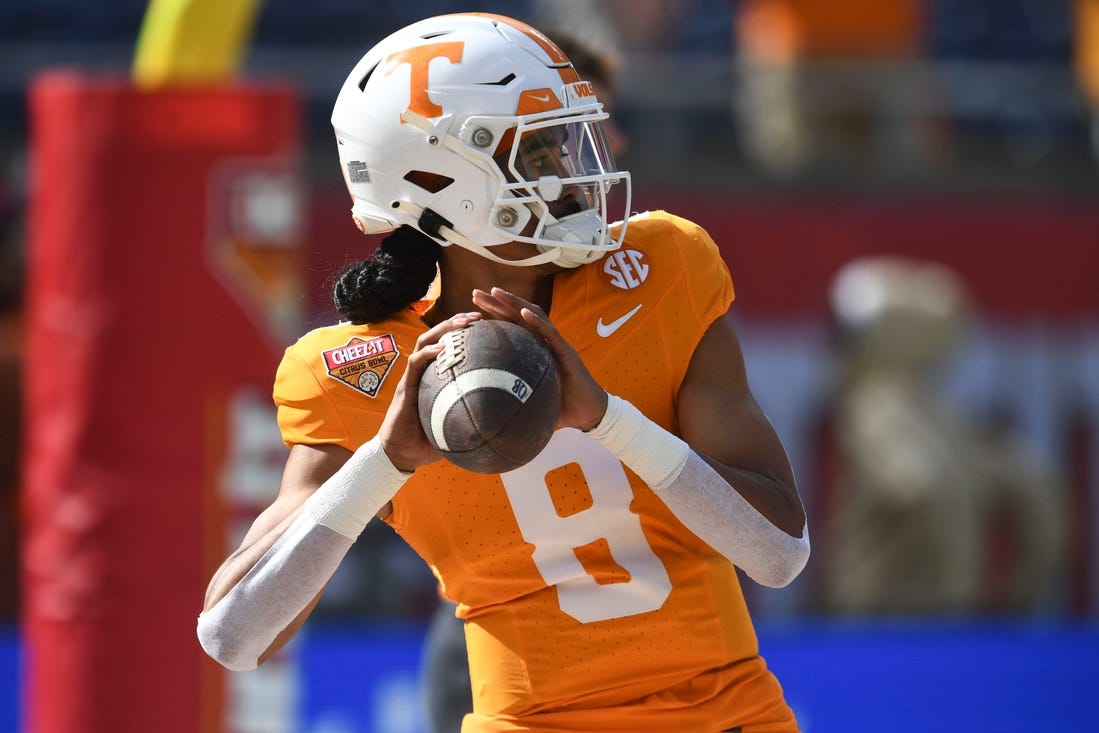
The NCAA cannot punish students or athletics program boosters for name, image and likeness recruiting inducements — at least for now — as a result of a federal judge’s preliminary injunction on Friday afternoon.
The injunction is not a final ruling in the case of Tennessee and Virginia v. NCAA, but the NCAA is in danger of fully losing its ability to enforce its NIL rules, which have been called into question by the attorneys general of both states.
“The NCAA’s prohibition likely violates federal antitrust law and harms student-athletes,” U.S. District Judge Clifton Corker wrote Friday.
Although the related court case is still active, Corker’s injunction means that athletes are free to negotiate NIL-related compensation before they enroll at a school. Though the judge is from the Eastern Tennessee District, his decision applies to the entire country.
NCAA president Charlie Baker, who was speaking to reporters when the judge issued his ruling, reiterated that his organization is seeking a federal antitrust waiver to address NIL issues.
“I would like something that’s very limited here, and I’m perfectly happy to have some federal oversight with regard to that limitation,” Baker said, according to USA Today. “The sort of broad-stroke antitrust exemption that people have talked about — I don’t think that’s necessary. I’m looking for something that just will end the uncertainty and the chaos around some of the very basic rule-making that’s a part of all this.”
Baker added his opposition to making cash payment a legal part of the recruiting process.
“I definitely don’t think it should be (allowed) right now, given the fact that there is no transparency (concerning what athletes make from NIL deals), there’s no accountability, and there’s lots of examples of people misrepresenting truth in reality to kids who then end up chasing that … and discover that what they thought was there isn’t,” he said, per USA Today.
The case stems from the NCAA’s decision in January to launch an investigation into the Tennessee football program over alleged recruiting violations. It centered on Nico Iamaleava, a five-star quarterback recruit coming out of high school, signing a deal with Tennessee’s primary NIL collective, Spyre Sports Group, reportedly worth $8 million.
Tennessee chancellor Donde Plowman addressed a biting letter to Baker last month, claiming the NCAA is not doing its part to establish clear rules for student-athletes, their families or universities.
“Instead, two and a half years of vague and contradictory NCAA memos, emails and ‘guidance’ about name, image and likeness (NIL) has created extraordinary chaos that student-athletes and institutions are struggling to navigate. In short, the NCAA is failing,” Plowman wrote in part.
The AGs of Tennessee and Virginia filed their antitrust lawsuit against the NCAA the next day.
“Without the give and take of a free market, student-athletes simply have no knowledge of their true NIL value,” Corker wrote Friday. “It is this suppression of negotiating leverage and the consequential lack of knowledge that harms student-athletes.”
Tennessee attorney general Jonathan Skrmetti said in a statement to news outlets Friday that his state would continue pursuing its litigation “to ensure the NCAA’s monopoly cannot continue to harm Tennessee student-athletes.
“The NCAA is not above the law, and the law is on our side.”
NCAA student-athletes have been allowed to profit off their names, images and likenesses since the Supreme Court ruled in their favor in NCAA v. Alston in summer 2021.
–Field Level Media

